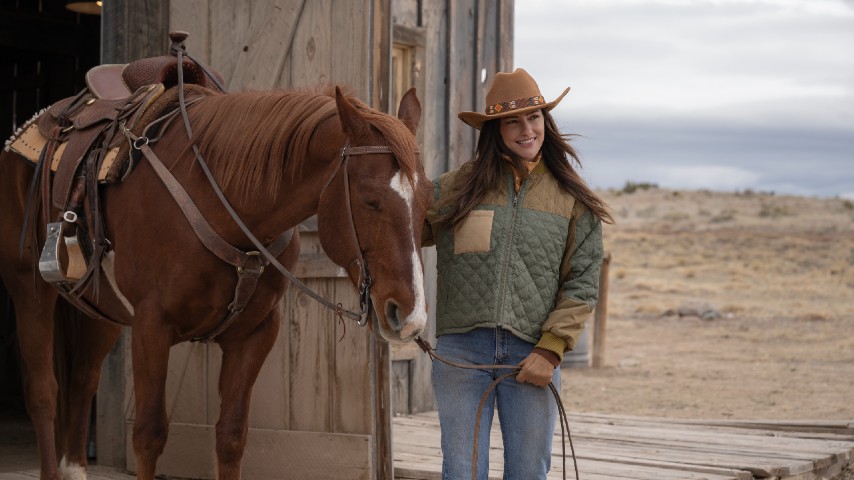Western romance Ransom Canyon goes down easy but leaves a weird aftertaste
The new Netflix series spotlights some regressive gender roles.
Photo: Anna Kooris/Netflix
Both of Ransom Canyon’s leads have likened it to some confection or other: In Josh Duhamel’s words, it’s “comfort food”; in Minka Kelly’s, it’s “gooey chocolate cake.” Descriptions like these denote something unserious, nothing intended to make an audience feel too deeply or confront their values systems all that much. And yes, the show’s ten episodes are engineered for maximum escapism and bingeability. But there are problems with this digestibility. When something is familiar and goes down easy, there’s the temptation to keep from questioning it. Pretty as it is, some harmful tropes are perpetuated here that might be better left drying up like roadkill in the Texas sun.
A variety of mostly white characters inhabit this canyon of Ransom: There are nepo-baby ranchers, a grumpy old one (a wise-cracking James Brolin), some wayward teens, pretty ladies both sassy and sweet, a mysterious and often shirtless stranger, and a sheriff. The show’s focus pivots from love triangle to love triangle, with a bit of whodunnit and rancher politics thrown into the mix for added drama. The main conflict centers on two ranchers—competitors and brothers-in-law—competing for the affections of beautiful boss babe Quinn O’Grady (Friday Night Lights‘ Minka Kelly). The lesser romantic interest is Davis Collins (Eoin Macken), a thrice-divorced single father with some grifter tendencies but enough of a sweet streak to interest this lady. He’s determined to get his fellow landowners to grant Austin Water And Power access to build a pipeline through their properties to benefit the community—or so he argues. The other, the clear hero of the show, is cattle rancher Staten Kirkland (Duhamel), a still-grieving widower who’s now also mourning the loss of his only child. He’s a man determined to hold onto his land and legacy at all costs, as long as he has his girl Quinn around to carry his baggage in exchange for some longing glances and occasional acts of service.
It’s not that dynamics like this don’t exist in real relationships. They do. It’s a matter of what these characters represent that makes this pairing problematic. The romantic leads in bingeable entertainment like this are meant to reflect the shorthand standards for what is deemed attractive, and permissible, to the culture at large. To root for these characters, a majority of this show’s audience needs to approve of—or at least recognize—their values.
Duhamel, for example, sports his cowboy scruff well as Staten and delivers exactly the kind of honest, understated performance that the role demands. As tiring as it is to see a dude wedded to the enterprise of never owning his own shit frequently dismiss a devoted and exceptional woman, people are familiar with this behavior and co-sign it as regular-guy stuff. And it’s especially excusable here because this man is grieving. Now, he does wise up some over the arc of the season, especially after she starts dating the other guy. But how far in the direction of a loving, compassionate partnership can a person reasonably go from such a dismal baseline? Not far enough.








































